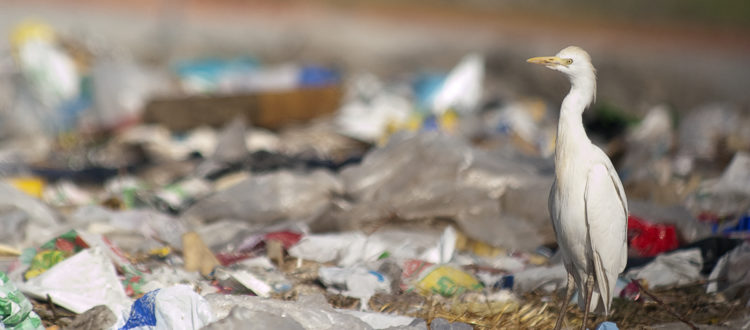Urban Bird Foundation Urges EPA to Reduce Plastic Production Emissions
On December 3, 2019, Urban Bird Foundation joined 364 environmental, public health, indigenous, labor and community non-governmental organizations in petitioning the Environmental Protection Agency to revise the Clean Air Act standards applicable to petro-plastics production facilities.
The signing organizations requested the EPA to control emissions of criteria pollutants and hazardous air pollutants from stationary sources that manufacture plastics precursors and resins as required under Sections 111 and 112 of the Clean Air Act. Specifically, Petitioners urge EPA to promptly review and revise the New Source Performance Standards and National Emission Standard for Hazardous Air Pollutants that apply to the manufacture of plastic precursors and plastic resins
Per the petition spearheaded by Center for Biological Diversity, the executive summary stated:
Plastic garbage is filling our planet. Gigantic gyres of plastic debris swirl in our oceans, plastic litter lines our rivers and coastlines, and microplastics permeate our waters, soil, and air. But plastic pollution goes beyond the waste we see. The plastics industry is polluting the air in some of the country’s poorest communities and fueling the climate crisis with massive amounts of greenhouse gases.
Without major changes to how we use, produce, and regulate plastic, the plastic pollution crisis is about to get much worse. As a first and necessary step to ending the plastic pollution crisis, this petition urges the U.S. Environmental Protection Agency (“EPA”) to update the air pollution rules that apply to industrial facilities that create plastic to significantly curtail the damage these plants cause.
The United States already creates more waste per capita than any other country. But over the next decade, the petrochemical industry plans to increase plastics production by at least 35 percent, with more than 300 new projects slated for the United States alone. Using the oversupply of fracked gas, the new and expanded facilities planned by the industry will produce the essential building blocks for an endless deluge of throwaway plastic.
Almost half of the plastic produced is disposable packaging meant to be discarded within minutes. Much of it will end up in landfills and incinerators, where it will emit harmful pollutants and greenhouse gases. Or it will end up in our oceans, where it will choke marine life and travel through the food web all the way to our plates.
The facilities that turn fossil fuels into plastic release a host of toxic pollutants into the air. The impacts of these emissions are myriad and severe. These emissions include hundreds of tons of known human carcinogens such as 1,3-butadiene, acetaldehyde, benzene, ethylene oxide, and formaldehyde, as well as a host of other toxics known to cause asthma and respiratory illnesses, central nervous system impairment, and reproductive and developmental problems. It’s absolutely incredible that with recent reports highlighting the drastic decline and plight of bird populations across the country and world that we are willing to put avian biodiversity at further risk so the petrochemical industry can embark on a massive expansion of plastics facilities,” said Scott Artis, Executive Director of Urban Bird Foundation. “I simply don’t see a reason to jeopardize wildlife, nearby ecosystems, surrounding communities, and the climate by allowing air pollution and GHG emissions from these plants to skyrocket.”


